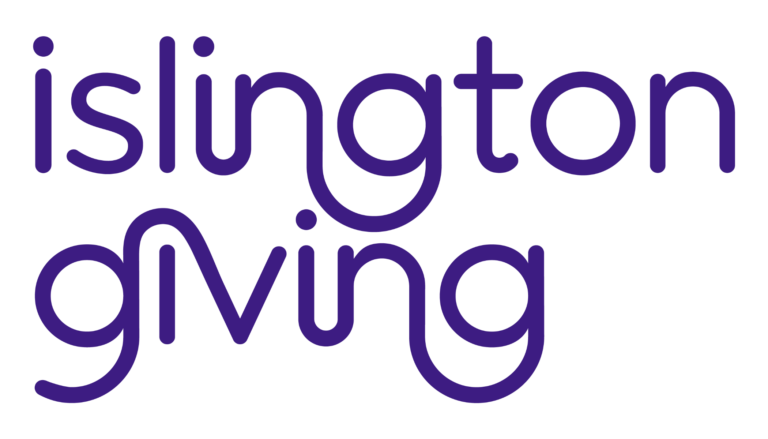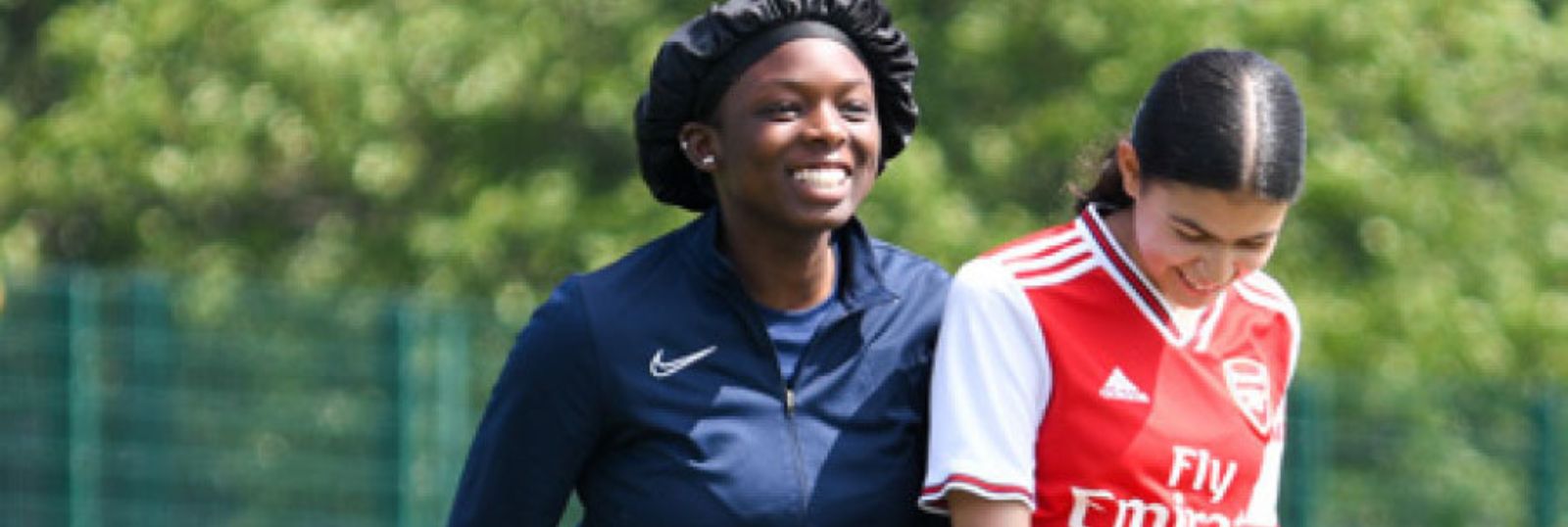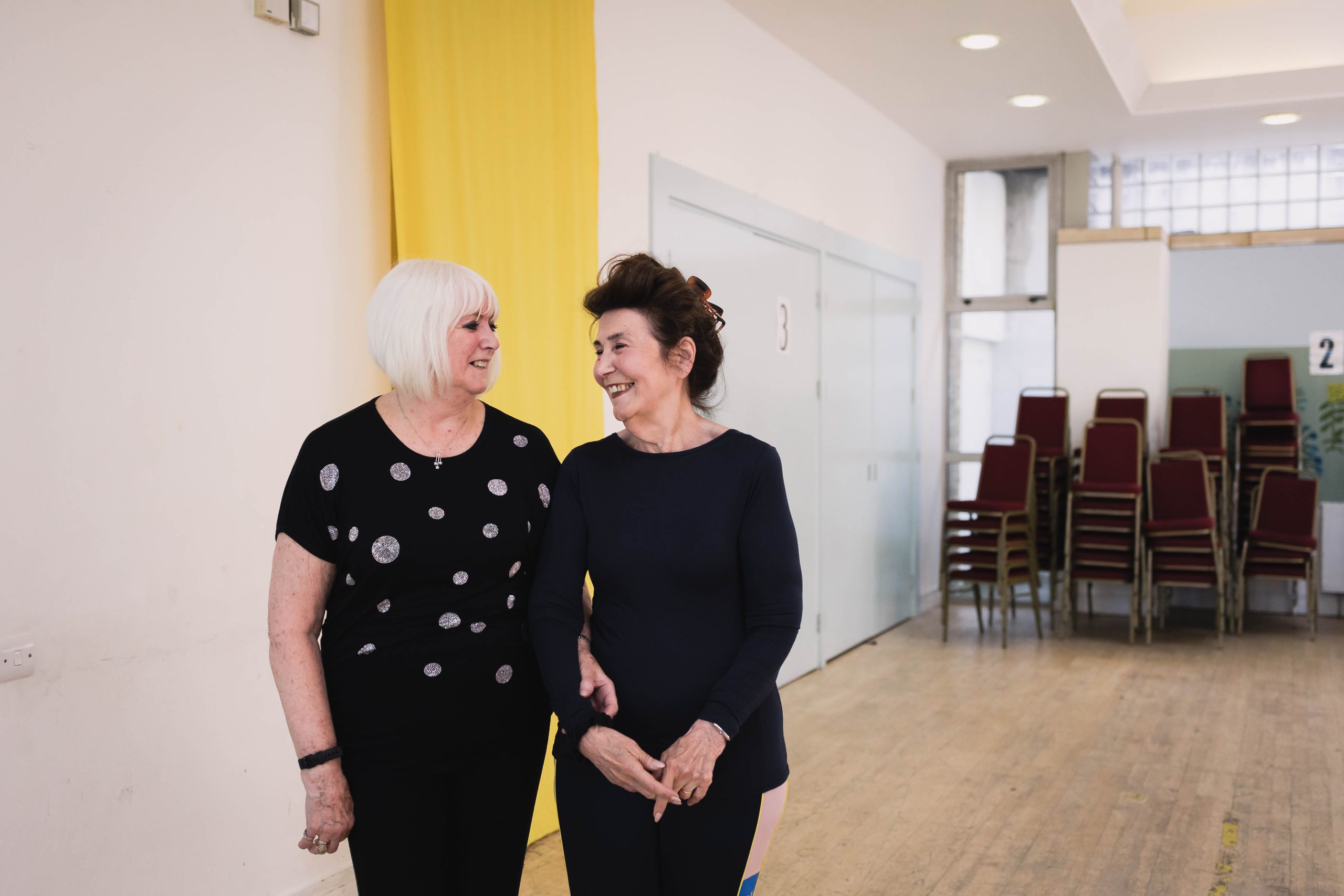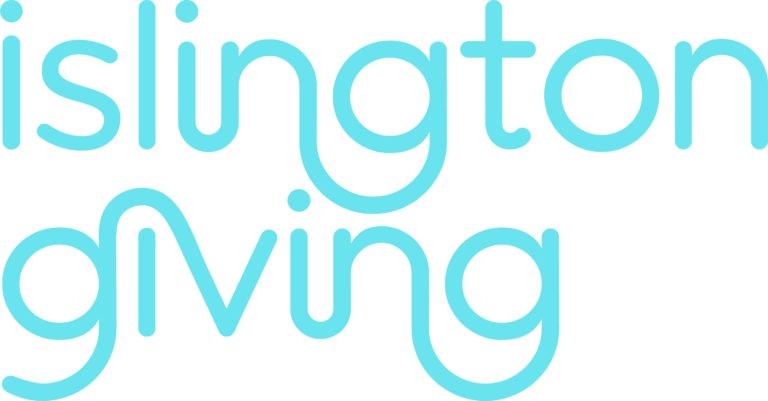“My involvement with the Arsenal Girls Kicks Programme aims to provide holistic wellbeing support to young girls between the ages of 8 and 17, in the form of workshops, group and one-to-one support.”
This Mental Health Awareness Week, we spoke to Sports Psychologist, Osiro Imoedemhe, who delivers the programme through the Brandon Centre funded by Islington Giving.

Tell us a little bit about yourself and the work you do at Brandon Connect and the Arsenal Girls Kicks Programme?
I’m a Chartered Sport and Exercise Psychologist whose practice is centred around helping people lead a more meaningful and values-based life by their standards. My primary focus with the Arsenal Girls Kicks Programme is to provide psychoeducation and 1:1 support for the girls who attend the sessions. The topics we focus on are aimed at increasing football performance but are also heavily wellbeing oriented. This means that the learnings from the session are applicable to day-to-day life. Some of the participants are from backgrounds where they may not necessarily have access to wellbeing education and support like this. So, learning these life skills early on and having someone to talk to about things that are going on in their lives, all while playing a sport they love, is vital.
The topics we focus on are aimed at increasing football performance but are also heavily wellbeing oriented. This means that the learnings from the session are applicable to day-to-day life.
What inspired you to work on this programme?
I absolutely love working with young people; I have done for many years. I really wanted to do something that helps young people access the support that they might not necessarily access in their day-to-day life. I mean, we all know the stats on young people and mental health – they’re not great. We also know what the NHS waiting list for support for mental health look like – due to a lack of funding among other factors, these stats are also not great. And so, for me, it’s the fact that I can help young people and young girls as well, access the kind of the support that they need whilst they’re going through a critical developmental phase in life.
How can young girls apply what they’ve learnt at Arsenal Girls Kicks to other areas of life including school?
I’ve found that a lot of the young people I work with – given they’re spending five days a week in school, in the classroom and at desks – don’t really enjoy learning in this way. So, first of all essential that the work I do doesn’t replicate this format. The sessions that I deliver are in this format where they’re playing a sport they love, they’re getting physical exercise – all stuff that’s great for mental health and wellbeing – and then on top of that they’re learning skills that promote wellbeing and performance. I think it’s a great collaboration and way of doing things.
If you don’t try, how are you going to know what and how to improve next time? You can’t see things like this as ”failures.” It’s just an opportunity for you to learn from something so that you can do better next time.
With football, you’re meeting new people, you’re learning social skills, you’re learning communication skills and about teamwork, all of which are vital for every aspect of life…whether you’re in school, whether you’re going to college, whether you are working, whatever it may be. And if we can help young people master these skill early on, it will help them navigate their way through life so much better.
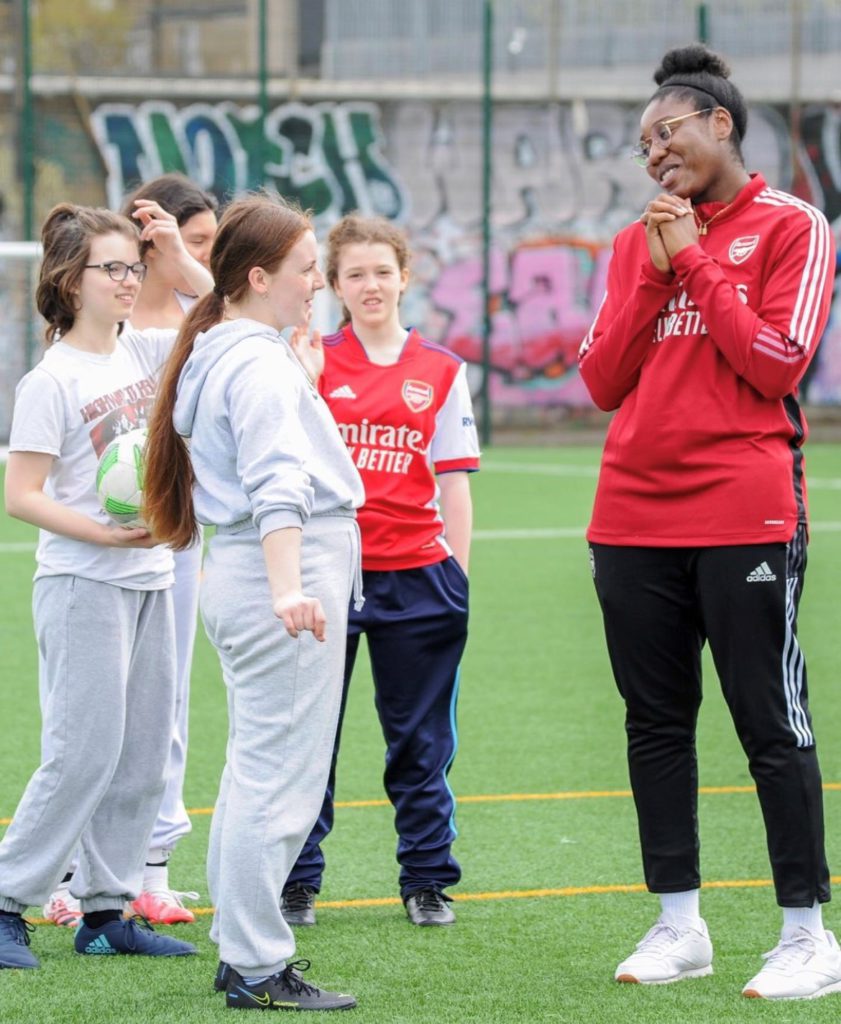
On top of general football practice, I add stuff like purposeful practice, so how do we make the most out of every moment? How do we, if we’re trying to develop a skill, become intentional at developing that skill? What are the steps to doing that? And how can we translate that into things like homework, studying for exams, and bigger life events? So yes, it’s very much wellbeing and performance focused in terms of learning and developing their football skills, but these principles very easily translate to other areas of life. And that’s what I’m trying to teach and show them; that yes, we can do it for football, but this also applies to when you’re home at seven o’clock on PlayStation instead of doing your homework. How do we learn to do what matters in the moment so that we are setting our future selves up for success?
Seeing some of those girls who came in alone not knowing anyone on the programme flourish, making friends, and just have a good time, is really rewarding stuff.
What have been some of the benefits so far?
You definitely see some of the more shy and less vocal girls coming out of their shell, communicating with their peers more, contributing more to sessions, and just having a go at new things and trying. And that’s something that I always encourage them to do – to try. If you don’t try, how are you going to know what and how to improve next time? You can’t see things like this as ”failures.” It’s just an opportunity for you to learn from something so that you can do better next time, or so you can keep doing what you’re doing really well if it has been successful. Seeing some of those girls who came in alone not knowing anyone on the programme flourish, making friends, and just have a good time, is really rewarding stuff.
Emotions are just things that tell us about how we’re feeling about the situation. The thing that is often seen as bad or good is the action that comes out of it.
How has the pandemic changed things and how did you navigate this?
There are definitely more girls that come to the in-person sessions than online. But what we did online was try to start reinforcing some of the learnings that I teach them week to week.
For example, one of the big topics we covered was on emotional regulation. This means understanding what our emotions are and what they tell us about ourselves in different situations. That piece of work is about dismantling the idea that there are good emotions and bad emotions. Emotions are just things that tell us about how we’re feeling about the situation. The thing that is often seen as bad or good is the action that comes out of it.
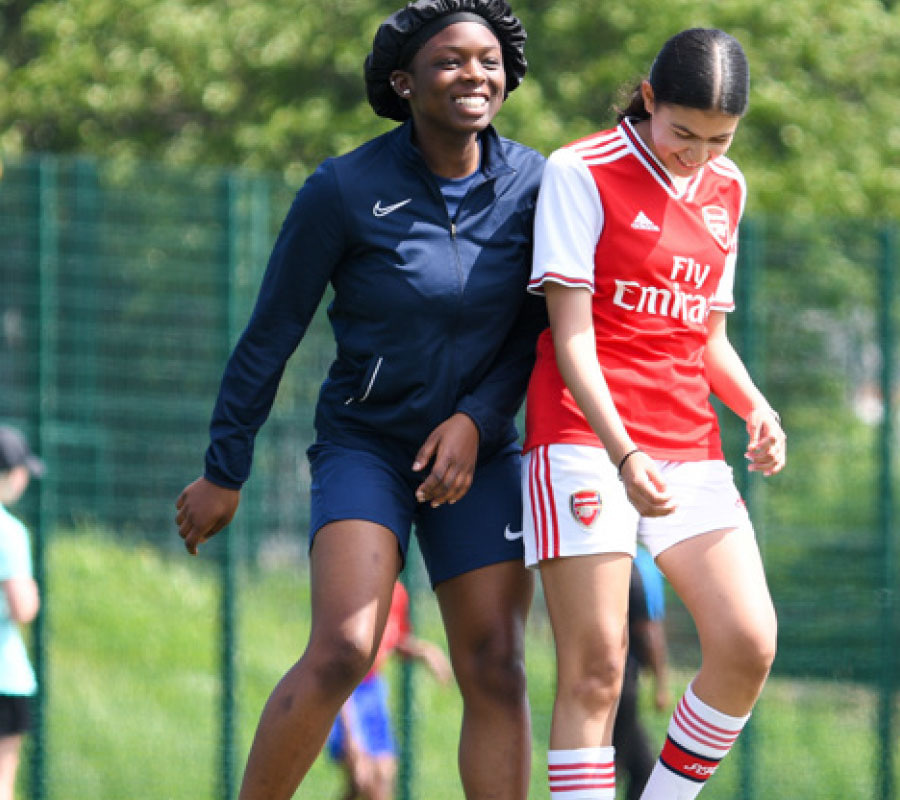
So, it’s learning and teaching them how to disassociate the two and understand their emotions more, so that their actions can be in line with their values of how they want to live, which can help them create a more meaningful life and very often keep them out of trouble. The example I like to use with the girls is that no one gets in trouble for being angry in a situation. Often, in those times, anger is the right response. What usually gets us in trouble is the resulting actions or behaviour from that anger such as shouting at people or displaying rude behaviour. By learning how to productively channel difficult emotions, there is less of a chance that situations will escalate where they didn’t necessarily need to.
We also did fun things to engage people on different levels. For example, we got some of the girls to teach us different languages that they spoke at home and we did maths quizzes for the girls that were really good at maths. All while adding this extra layer of psychoeducation that we thought would benefit them during the pandemic.
This year’s Mental Health Awareness Week theme is Loneliness. Why do you think young people may still be experiencing loneliness today, despite the rise in social media and different ways to connect?
Very simply put, social media isn’t the real world. We, as humans are designed to connect with people. If you go way back when, that is how we survived. We survived by being in groups, by protecting each other by forming alliances. There’s also a concept called emotional contagion which means if you feel something or express your emotions, someone else may be able to tap into that as an automatic reflex because that is the way our brains are wired and designed. And trying to make these connection through a computer or a phone screen is so much harder, and we can’t make those emotional connections with other humans through those devices.
As humans we are designed to connect with people…spending time with people in real life helps us flourish, grow and create those neural pathways that help us be human.
And so, it’s no wonder that young people, and people in general are feeling more lonely or lonelier than probably ever before. We think that being on social media is good enough and neglect actually spending time with people in real life and having those connections that help us flourish and grow and create those neural pathways that help us being human.
I love this programme because it encourages young people to come out and connect with their peers and other people, put their phones away for a couple of hours every week and just be human. I think if we did more of that, the state of mental health in this country would drastically improve. But also, we see a lot of people becoming much happier and living lives that are more meaningful to them.
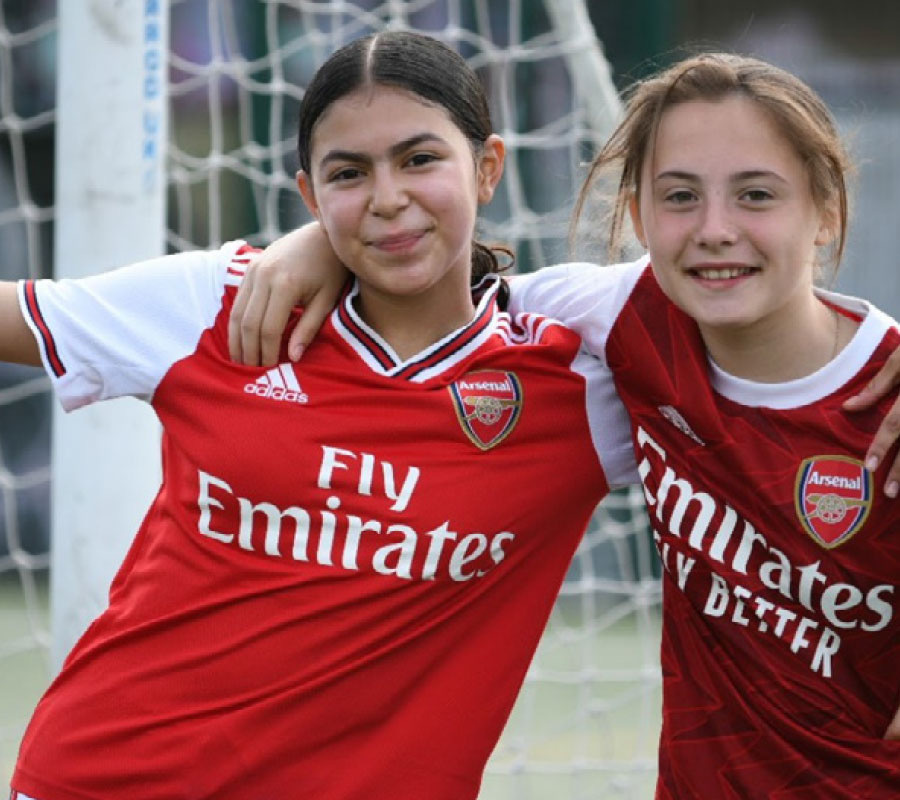
What is the long-term impact of addressing loneliness and social isolation today and how do you think your work contributes to this?
It’s important to address it because a lot of young people think it’s only happening to them. If we call it out and we’re all a bit more honest about how we’re feeling, it will normalise it. And by that I mean it will help people understand that they are not alone in feeling this way, and then we’d be able to do a bit more about it. If we don’t have an awareness of what’s happening or if we hide problems under a rock and don’t share how we feel and don’t address things, we aren’t able to fix them and progress. So, I think it’s important to speak up about it.
If we call it out and we’re all a bit more honest about how we’re feeling, it will normalise it. And by that I mean it will help people understand that they are not alone in feeling this way, and then we’d be able to do a bit more about it.
In terms of long-term impacts, we know that loneliness can have severe impacts on mental health – it can often lead to depression, anxiety, all sorts of things. So, addressing it could have a really significant impact on the number of people that go through mental health challenges that are related to loneliness and isolation. And this again goes back to the fact that we need to encourage people to talk about how they feel and help people understand that it is a thing that other people are experiencing too. I think that would be a lot of the battle won in terms of reducing the less than desirable long-term impact of loneliness and social isolation.
This feature is part of our content for MHAW, highlighting our collaboration with Brandon Centre and Arsenal in the Community. Sign up to our newsletter today for more inspiring content.
